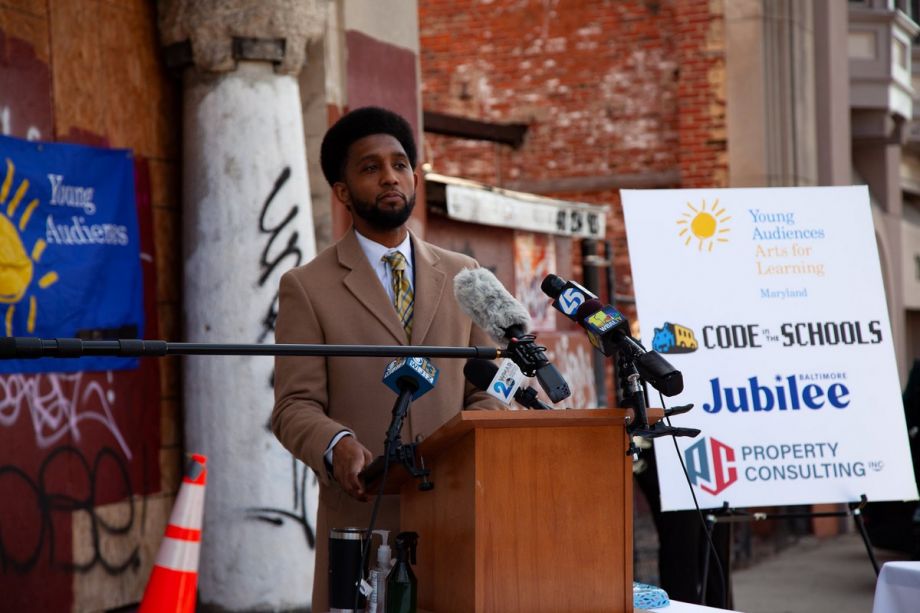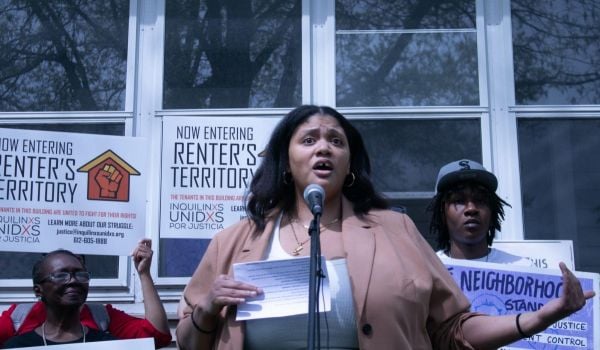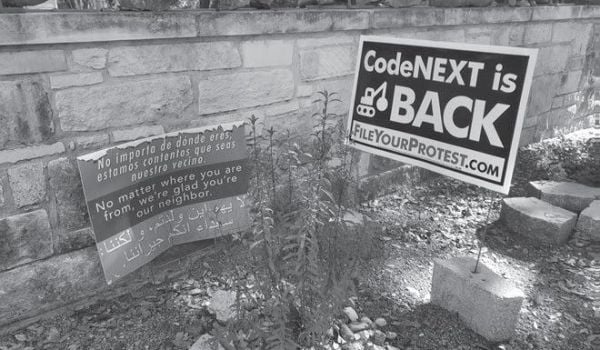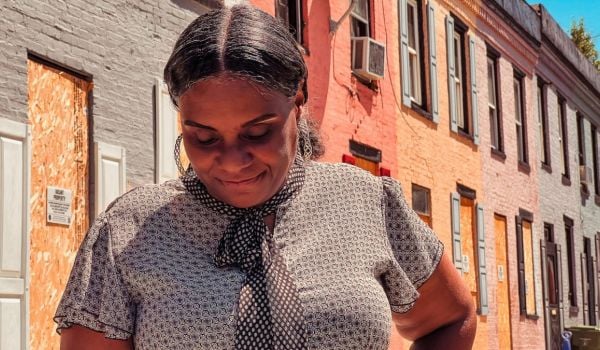Baltimore Mayor Vetoes Security Deposit “Insurance” Bill
Baltimore Mayor Brandon Scott vetoed a bill that would provide alternatives to traditional security deposits for tenants this week, potentially marking a swift turnaround for a proposal that the city council approved by a vote of 12-2 in April, according to a report in The Baltimore Sun.
The bill would have required some landlords to give tenants a choice to pay a security deposit in three monthly installments or opt for a security deposit “insurance” plan, in which they would pay nonrefundable monthly premiums to a bond company that would cover the upfront costs of damages but bill the tenant for them afterward, the report says. That could result in tenants paying more than the cost of a security deposit, and in the weeks since the bill’s passage, advocacy groups including the Baltimore branch of the NAACP, Maryland Consumer Rights Coalition, Baltimore Teachers Union, CASA and Progressive Maryland, lobbied the mayor to veto the bill, according to the report.
“I cannot ignore the concerns raised about the security deposit insurance option included within the legislation,” Scott said in a statement after vetoing the legislation, according to Greater Greater Washington. “Notably, that the provision can hurt the very people that it is intended to help.”
In December, Shelterforce described how the “security deposit insurance” legislation being considered in many different jurisdictions is “not actually insurance.” In the days before Scott vetoed the bill in Baltimore, Baltimore Brew reported that an unregistered lobbyist for Rhino, a company that provides the alternative security deposit product, was working closely with Baltimore lawmakers on the legislation. After the veto, Baltimore City Council President Nick Mosby, who supported the legislation, described the veto as “modern-day redlining with an outsized impact by a vocal advocacy class.” The council could consider overriding the veto, which would require 10 votes, at its next meeting, according to Baltimore Brew.
Black Homeowner’s Appraisal Doubles After White Friend Stands In
A Black homeowner in Indianapolis saw the appraised value of her house more than double after removing items that identified her race and asking a white friend to stand in for her during the appraisal, according to a report in the Indianapolis Star. The owner, Carlette Duffy, purchased the home in 2017 for $100,000 and sought to refinance her mortgage last year, according to the report. Two appraisals came in at $125,000 and $110,000, but a third appraisal, during which Duffy “communicated with the appraiser strictly via email, stripped her home of all signs of her racial and cultural identity and had the white husband of a friend stand in for her during the appraiser’s visit,” came back with a value of $259,000 according to the report. Duffy is now working with the Fair Housing Center of Central Indiana to sue the mortgage lenders that made the appraisals for undervaluing the home because of her race, the report says. Homes in Black neighborhoods are often undervalued compared to white neighborhoods, as Next City has reported.
“It’s almost when people see Black neighborhoods, they see twice as much crime than there actually is,” Andre Perry, a senior fellow for the Brookings Metropolitan Policy Program, told the IndyStar. “They see worse education than there actually is. I think this is what’s happening when appraisers, lenders, real estate agents see Blackness. They devalue the asset. They devalue the property.”
The homeowner told the paper that she felt “excited, vindicated, relieved, angry, extremely peeved,” among other emotions.
“I had to go through all of that just to say that I was right and that this is what’s happening,” Duffy said, according to the report. “This is real.”
Home Purchases By Investors on the Rise
More homes are being bought by investors in 2021 after a year of declines in investor purchases, according to a new report from Redfin. The company defines investors as “any institution or business that purchases residential real estate.” In the first quarter of 2021, investors bought one out of every seven homes, according to the report. That’s a rebound from the previous three quarters and close to the 16.1% purchase rate at this time last year. The biggest increase was in the category of single-family homes, where the rate of investor purchases increased 4.8%, “likely because Americans have been prioritizing space and privacy during the pandemic, turning single-family homes into a hotter commodity than crowded apartment buildings in the city,” according to a press release accompanying the report.
In particular, investors are increasingly purchasing high-priced homes, although they still purchase more homes at low prices than any other price range: 1 in 5 low-priced homes was bought by an investor in the first quarter, according to the report. Cities with the highest rates of investor purchases in the first quarter include Miami, Atlanta, Jacksonville, Charlotte, Las Vegas and Phoenix, the report says.
Investors “may be jumping back in because they see the intensifying shortage of homes for sale as an opportunity,” Redfin Senior Economist Sheharyar Bokhari said, according to the press release. “With so few houses on the market, many families are resorting to rentals. Flush with cash, investors are able to snap up the homes that are available, and then turn around and rent them out to folks who can’t find a home or are priced out of homeownership. This is likely making the housing shortage even worse, and also means that individual homeowners sometimes end up competing with investors in bidding wars.”
This article is part of Backyard, a newsletter exploring scalable solutions to make housing fairer, more affordable and more environmentally sustainable. Subscribe to our weekly Backyard newsletter.

Jared Brey is Next City's housing correspondent, based in Philadelphia. He is a former staff writer at Philadelphia magazine and PlanPhilly, and his work has appeared in Columbia Journalism Review, Landscape Architecture Magazine, U.S. News & World Report, Philadelphia Weekly, and other publications.
Follow Jared .(JavaScript must be enabled to view this email address)


















